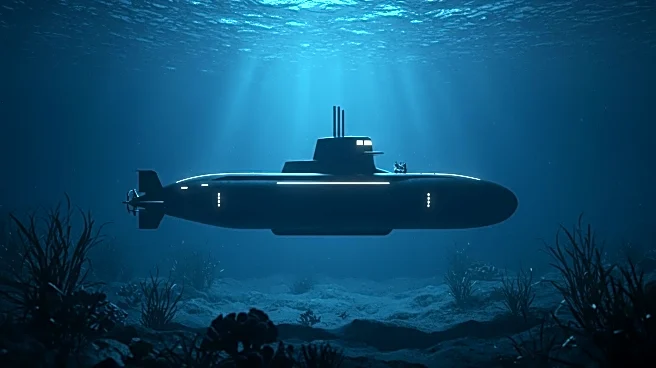What's Happening?
Thailand has decided to proceed with the acquisition of a Chinese-built S26T diesel-electric submarine after a period of indecision due to engine supply issues. The Thai Cabinet approved a contract amendment on August 5, allowing the project to continue after it had been dormant since 2021. The submarine, ordered in 2017, faced delays when Germany refused to supply the required MTU 396 diesel engines due to an EU arms embargo on China. China proposed using its CHD620 engines, which were bench-tested for over 6,000 hours to ensure reliability. The Royal Thai Navy concluded that these engines met performance standards, allowing the project to move forward. China has agreed to provide compensation, including extended warranties and maintenance support, worth $24.7 million.
Why It's Important?
The decision to proceed with the submarine project highlights Thailand's growing ties with China, especially after relations with the U.S. cooled following Thailand's 2014 military coup. The project underscores geopolitical dynamics in Southeast Asia, where military procurement can reflect broader diplomatic alignments. The use of Chinese engines also raises questions about the reliability and quality of Chinese military technology, which could impact future defense collaborations. Additionally, the situation illustrates the complexities of international arms trade, where political considerations can affect technical and commercial decisions.
What's Next?
China is expected to complete the submarine by December 2028, with the vessel currently 64% complete. Thailand will continue to pay for the submarine in installments, with 37% of the cost still outstanding. The Royal Thai Navy will receive additional equipment and weapons as part of the compensation package, although specifics remain unclear. The project may influence future military procurement decisions in the region, as countries weigh the benefits of Chinese technology against potential political and quality concerns.
Beyond the Headlines
The saga of the submarine project highlights the challenges of international defense contracts, where assumptions about supply chains can lead to significant delays. It also raises ethical questions about the enforcement of arms embargoes and the role of military rule in shaping procurement decisions. The situation may prompt other countries to reassess their defense strategies and supplier relationships, particularly in light of shifting geopolitical alliances.











